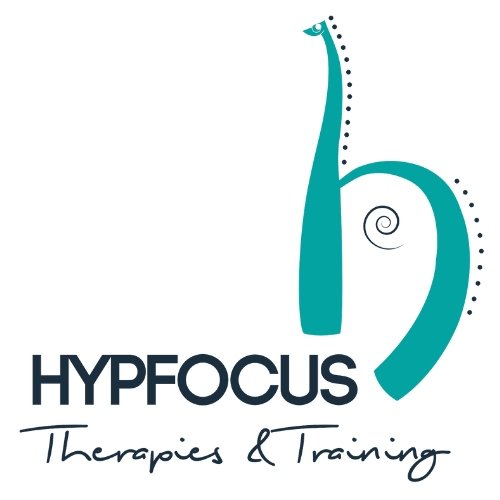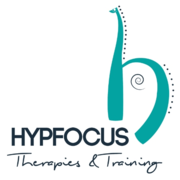Self-Doubt and Its Impact on Professional Growth
Self-doubt tends to sneak in quietly. It might start with a small hesitation before speaking up in a meeting or second-guessing an idea that once felt exciting. Over time, that little voice in your head saying, “What if I’m wrong?” can grow louder, keeping you stuck in the same place even when you're ready to grow. If you're based in Melbourne and trying to make strides in your career, self-doubt can feel like dragging a weight behind you every step of the way.
Everyone questions themselves from time to time, but when self-doubt makes most of your decisions for you, it becomes something more than nerves. It’s not just holding you back from tasks, it’s holding back who you’re becoming. Understanding how it shows up and what it does to your work life is an early step to loosening its grip. Once you can see it clearly, you can challenge it and get back in the driver’s seat.
Understanding Self-Doubt and Its Consequences
Self-doubt is that inner feeling of uncertainty about your abilities or decisions. It creeps in when you're trying to present an idea, lead a project or even just send an email to someone more senior. It’s not the same as being modest or careful. Self-doubt often shows up even when you have solid experience or knowledge. And the frustrating thing is, it’s very good at sounding like your own voice.
Professionals feel self-doubt for all sorts of reasons, especially when working in high-pressure environments or roles where public perception matters. Here are a few common triggers:
1. Past failures or criticism that stuck with you
2. Comparing yourself to colleagues or others in your field
3. Perfectionist habits that make small mistakes feel huge
4. Lack of feedback or recognition from managers
5. High expectations you place on yourself
It can become a loop that feeds itself. You don’t speak up, your ideas aren’t recognised, and then the self-doubt says, “See? You shouldn’t have said anything anyway.”
One example: Say you’ve got a great idea for a client strategy, but you’re filled with doubt when you start preparing for the meeting. You second-guess the plan, scrap it all and end up staying silent during the presentation. Someone else presents a similar idea weeks later, and it’s met with praise. That moment reinforces the belief that maybe you’re just not cut out for leading these conversations.
Over time, these small setbacks can have a big impact. They shape how you see yourself, how much you’re willing to try new things, and how much space you take up in your workplace.
Impact of Self-Doubt on Professional Growth
Self-doubt doesn’t just stay in your head. It has a way of seeping into all parts of your work life, sometimes in ways that are hard to notice until they pile up.
Here’s how it often shows up:
1. Career Stalling
You might hesitate to apply for roles you’re qualified for or avoid asking for opportunities that could help you grow. Promotions get delayed not always because you're not skilled, but because you’ve gone quiet, waited too long, or stopped showing you’re ready.
2. Less Creativity and New Ideas
When you doubt yourself, taking risks at work feels too scary. You might hold back your input in brainstorm sessions, avoid offering feedback, or stick to the safest, most familiar ways of doing things, even when those methods aren’t helping you or your role progress.
3. Weaker Work Relationships
Self-doubt can make social parts of work feel harder. You might steer clear of work events, avoid small talk with leaders, or limit how much you network. Over time, this can leave you isolated, making collaboration harder and stalling access to mentors or allies.
4. Struggling to Make Decisions
Chronic second-guessing slows your response time and drains your energy. When decision after decision feels heavy, the stress builds fast. Others might see it as a lack of confidence or commitment, even though you’re working hard behind the scenes to get things right.
As these patterns continue, many professionals in Melbourne start to feel stuck. Not because they aren’t capable, but because something inside is convincing them to pull back. The good news is, once you start recognising these patterns, they can be changed. The way forward might not be instant, but it doesn't have to feel so out of reach either.
Recognising and Challenging Self-Doubt
Once self-doubt becomes part of your day-to-day thinking, it can feel almost automatic. You might not even realise how often your inner voice is second-guessing you. Becoming aware of how it speaks, when it shows up, and what triggers it is a sensible first step.
Here are some signs you might be caught in this loop:
- You overthink small comments or feedback for days
- You hold back ideas until someone else says something similar
- You feel like you're waiting for someone to “find out” you aren’t good enough
- You question your decisions well after making them
- You apologise often, even when it’s not needed
Once you spot these patterns, it’s easier to start breaking them down. One of the quickest ways to do that is by listening closely to your self-talk. If your automatic inner voice says things like “I’ll mess this up” or “I should stay quiet,” take a moment to pause and challenge that.
You don’t need to replace those thoughts with forced positivity. You just need to give your brain new language that’s more accurate. For example:
- I might not have the full answer, but I’ve done the prep
- I’m allowed to share an idea without it being perfect
- Making a mistake doesn’t mean I’m not good at my job
It can also help to get those thoughts out of your head and onto paper. Journaling or jotting down your self-doubts, then writing down a more balanced version beside each one, lets your brain sort through what’s real and what’s old conditioning.
These small practices may not feel like much in the moment, but over time they can reshape how you see yourself and your abilities. You begin to trust your judgement more and step into challenges with a steadier mindset.
Building Confidence Through Hypnosis Therapy for Anxiety
Anxiety and self-doubt often go hand in hand. When you’re constantly anticipating what might go wrong, it’s easy to pull away from chances to grow. That’s where hypnosis therapy for anxiety can offer targeted support, especially for professionals in Melbourne who are feeling stuck in their development.
Rather than just dealing with thoughts on the surface, hypnosis works at a deeper level. It helps calm the nervous system and ease that internal chatter that fuels second-guessing. You’re guided into a focused, relaxed state where your subconscious mind becomes more open to suggestion. That’s where long-held patterns, like doubting your worth or fearing failure, can start to shift.
During hypnosis, you can work with a practitioner to identify the source of certain beliefs. Maybe your self-doubt started after a workplace experience or a series of subtle messages picked up over time. In this relaxed space, the mind is more responsive to new patterns of thinking that are based on truth instead of past fears.
Another strength of hypnosis is in helping you manage the physical symptoms of anxiety. When your body isn’t buzzing with tension or dread, situations like public speaking, performance reviews, or team discussions start to feel more manageable. That change in physical state has a direct link to confidence. When you feel grounded, you show up more.
Many professionals who’ve taken this route describe feeling clearer, more decisive, and more willing to speak openly after sessions. For example, one Melbourne-based project lead came into therapy after turning down three different promotions in a year. Their confidence had slowly drained away following a difficult experience in a previous role. Through hypnosis therapy for anxiety, they were able to reconnect with their strengths and take on new responsibilities without falling into the cycle of self-doubt.
Taking the Next Step Towards Professional Growth
Even when you know that self-doubt is holding you back, figuring out what to do next isn’t always simple. Rebuilding that sense of confidence happens step by step and sometimes having a plan makes all the difference.
Here are a few helpful ways to start:
1. Set Small Stretch Goals
Don’t aim for huge leaps right away. Choose actions that feel just outside of your comfort zone. This could mean volunteering to lead a part of a meeting or giving feedback during a team brief. Each small action helps shape a new sense of normal.
2. Keep Track of Wins
Write down the things you’re proud of each week, not just the big successes, but the moments when you pushed through discomfort. Over time, this list will grow and challenge the story that you’re not achieving enough.
3. Talk With Someone You Trust
Whether it’s a mentor, a counsellor or a skilled therapist, talking openly about self-doubt helps it lose its grip. You gain insights, support, and often a helpful sense of perspective that you can’t always get on your own.
4. Learn How Your Mind Works
Understanding where your anxiety and hesitations come from can help you spot unhelpful patterns. With that knowledge, they become far easier to shift in a lasting way.
5. Prioritise Your Mental Tools
Whether you choose hypnosis therapy for anxiety or another professional support, make it part of your toolkit rather than a last resort. When you feel steady inside, progress becomes more natural.
Take Control of Your Professional Growth with Hypnosis Therapy for Anxiety
Professional growth doesn’t just come from skill or opportunity. It also comes from the way you speak to yourself and the chances you allow yourself to take. Self-doubt has a way of shrinking those chances until they feel out of reach, even when you’re more than capable. But once you start to recognise the pattern, you can learn to challenge it.
If you're based in Melbourne and have found yourself stuck, not because you lack talent, but because confidence feels shaky, this isn’t where the story ends. There are grounded, meaningful ways to build that trust in yourself again. Progress might not happen overnight, but with consistent support and the right mindset tools, a different path forward becomes possible.
Wondering how to tackle feelings of self-doubt and anxiety in the workplace? At Hypfocus, we can guide you through this journey with hypnosis therapy for anxiety. This approach eases those overwhelming feelings, helping you rediscover your confidence. By working with us, you can start taking back control over your professional growth and see possibilities open up again. Learn more about how we can support you and see your path forward become clearer.

